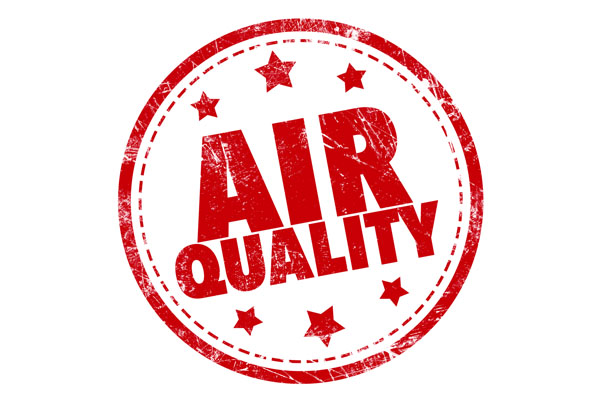Page Contents
- 1 Grasping the Essentials of Home Ventilation
- 1.1 Types of Home Ventilation
- 1.2 The Significance of Ventilation in Upholding Indoor Air Quality
- 1.3 The Necessity of Sufficient Ventilation
- 1.4 Determinants of Home Ventilation Requirements
- 1.5 Identifying Your Home’s Ventilation Requirements
- 1.6 Cautionary Aspects of a DIY Ventilation Strategy
- 1.7 Ventilation Standards and Regulatory Framework
- 1.8 How to Improve Home Ventilation
- 1.9 Evaluating the Costs and Benefits of Home Ventilation
- 1.10 Conclusion
- 2 Contact Modern Comfort for Expert HVAC Services
Understanding home ventilation is vital for a healthy, pleasant, and energy-efficient living space. Proper home ventilation maintains indoor air quality, removes contaminants, moisture, and odors, and balances temperatures. This article explores the role of ventilation in improving home comfort and efficiency, emphasizing the balance between fresh air circulation and energy conservation.
Grasping the Essentials of Home Ventilation
Home ventilation involves the deliberate process of swapping the air inside your home with the air from the outside. This exchange ensures a steady stream of fresh air circulates throughout your living space, simultaneously expelling indoor air pollutants, excess humidity, and lingering odors.
The role of home ventilation is crucial in keeping the indoor environment healthy and comfortable. It offers homeowners an atmosphere that is clean, breathable, and refreshing.
Types of Home Ventilation
Home ventilation can be broadly categorized into two types:
- Natural Ventilation: This depends on the movement of air through open windows, doors, and vents, propelled by natural elements like wind and differences in temperature. It is a passive ventilation method, influenced by the architectural design, orientation of the building, and the surrounding climatic conditions.
- Mechanical Ventilation: Mechanical ventilation utilizes mechanical systems such as fans, air exchangers, and ductwork to manage and steer air flow. This approach is particularly beneficial in structures where natural ventilation is limited or in situations where precise control over air exchange rates is necessary.
The Significance of Ventilation in Upholding Indoor Air Quality

The role of ventilation in enhancing the quality of indoor air includes:
- Eliminating Pollutants
- Managing Humidity
- Neutralizing Odors
- Diluting Indoor Pollutants
- Regulating Comfort and Temperature
The Necessity of Sufficient Ventilation
Ensuring adequate ventilation is imperative for various reasons:
- Air Quality Preservation: Continuous fresh air flow through effective ventilation dilutes indoor pollutants like allergens, VOCs, and particles, enhancing indoor air quality and reducing respiratory issues.
- Mold and Moisture Prevention: Ventilation controls indoor humidity and removes excess moisture, preventing mold, mildew, and bacteria growth, protecting the building’s structure and occupant health.
- Odor Elimination and Heat Reduction: Proper ventilation removes unpleasant odors and disperses excess heat, improving indoor comfort and reducing reliance on air conditioning.
- Health Benefits: Improved indoor ventilation reduces exposure to allergens, irritants, and pollutants, benefiting respiratory health and overall well-being.
Determinants of Home Ventilation Requirements
Several factors determine a home’s ventilation needs:
First, the size and configuration of the home greatly influence air circulation. Larger homes may require additional ventilation points to achieve even airflow throughout.
Second, occupancy and lifestyle elements play a crucial role. The number of residents and activities like cooking, showering, and using household products can increase indoor pollutants, necessitating more efficient ventilation.
Third, the impact of local climate and weather is significant. Proper ventilation is essential for moisture control in humid regions, while in colder climates, it’s necessary to prevent indoor condensation and mold growth.
Lastly, the construction and age of the home affect its natural air exchange capabilities. Older homes often lack airtight features and thus need more ventilation, whereas newer, energy-efficient homes with better insulation and sealing might require mechanical ventilation systems to maintain adequate air circulation.
Identifying Your Home’s Ventilation Requirements
To accurately assess your home’s ventilation needs, there are several approaches:
First, consider a professional evaluation. Hiring an HVAC technician or an energy auditor is highly reliable. These experts use tools like blower door tests, air quality monitors, and airflow measurement devices to conduct thorough assessments. They can determine the optimal ventilation rates for your home, considering its size, the number of occupants, and local climate conditions.
Alternatively, you can conduct DIY evaluations. Simple methods include monitoring indoor air quality and humidity levels. You can also use calculation guidelines from organizations like ASHRAE to estimate necessary ventilation rates, considering factors such as the number of people and total floor area.
Additionally, numerous online tools and calculators can help approximate your home’s ventilation requirements. These resources factor in home size, occupants, and activity levels to provide rough estimates. However, while convenient, these tools may not capture the unique aspects or local environmental conditions of your home as precisely as a professional evaluation.
Cautionary Aspects of a DIY Ventilation Strategy
Addressing home ventilation requires considering factors like home size, occupancy, and local climate; however, DIY approaches can lead to problems. Incorrectly installed DIY systems may lead to inadequate or excessive airflow, reducing indoor air quality and comfort. These systems could also introduce outdoor pollutants and moisture, worsening air quality and posing health risks.
Improperly modified HVAC systems can become inefficient, malfunction, or get damaged, resulting in costly repairs and reduced home comfort. Moreover, DIY ventilation can be hazardous, with risks of accidents, fires, and health hazards, and may cause legal issues if not compliant with building codes.
Ventilation Standards and Regulatory Framework
ASHRAE and similar organizations set crucial standards and guidelines for indoor air quality and comfort, detailing ventilation rates, airflow, and design considerations for effective ventilation in residential and commercial buildings. These standards are adaptable, taking into account the number of occupants, building size, and local climate, and are applicable to various home types like single-family houses, apartments, and high-rises, ensuring flexibility to suit different architectural styles and occupant needs.
How to Improve Home Ventilation
To boost your home’s ventilation, consider:
- Maintaining the HVAC System: Regular cleaning or replacing of air filters, inspecting for duct leaks, and ensuring the system’s overall efficiency are crucial steps. A well-maintained HVAC system is vital to achieving optimal airflow and adequate ventilation in your home.
- Upgrading Ventilation Systems: Align your ventilation systems with current standards. Mechanical ventilation options like supply fans, exhaust fans, heat recovery ventilators (HRVs), or energy recovery ventilators (ERVs) are effective. These systems exchange stale indoor air for fresh outdoor air, conserving energy in the process. They’re particularly beneficial for tightly sealed homes, ensuring controlled ventilation.
- Utilizing Natural Ventilation: Open windows to create cross-ventilation, which helps promote airflow. Arrange windows across from each other for optimal air exchange, letting fresh air enter and stale air to exit. Installing window screens can keep insects out while letting in fresh air. Also, make use of cooler outdoor conditions, like in the evenings, to naturally lower indoor temperatures.
Evaluating the Costs and Benefits of Home Ventilation

Improving your home’s ventilation brings significant benefits. Firstly, it enhances energy efficiency by effectively regulating indoor temperatures and reducing reliance on heating or cooling systems. Advanced ventilation systems can recover heat from outgoing air, ensuring a comfortable indoor environment while minimizing energy consumption.
Secondly, better ventilation greatly improves indoor air quality, which positively impacts health and comfort. It lowers pollutant and allergen levels, reducing respiratory issues and promoting overall well-being. Additionally, effective ventilation prevents excessive moisture buildup, crucial in preventing structural damage, material deterioration, and mold growth, thereby maintaining your home’s structural integrity and longevity.
Conclusion
Ensuring proper ventilation in your home is key to preserving indoor air quality, comfort, energy efficiency, and the building’s structural integrity. Recognizing the factors that impact ventilation needs and adhering to established standards are essential steps. While DIY methods carry risks, seeking professional assistance ensures precise evaluations and effective, customized solutions for your home. Opting for expert guidance helps avoid potential issues and contributes to a cleaner, healthier, and more comfortable living space.
Contact Modern Comfort for Expert HVAC Services
Modern Comfort is your go-to expert for heating and cooling solutions in Central Maryland and Southern and Central Pennsylvania. Our highly trained and professionally certified technicians specialize in various HVAC services, including tune-ups, repairs, installations, and replacements. We are dedicated to providing the highest quality service to all our clients.
Understanding the need for a comfortable and energy-efficient home, Modern Comfort offers competitively priced services. Our maintenance programs are tailored to enhance your comfort while helping you save on utility expenses. If you’re facing an HVAC repair or need a replacement, our knowledgeable technicians will guide you toward the best solution, keeping your budget in mind. We are proud of our work and offer a satisfaction guarantee for your peace of mind.
Ready to book a service? Call us for a free, in-home estimate. Make an informed decision about your HVAC systems with our expert advice. Choose Modern Comfort for outstanding HVAC services!
You can click here to contact us now or call us at (410) 429-7252 (MD residents) and (717) 489-3939 (PA residents) to find out more! Click the link to view our service area.

Related Articles:

Recent Articles